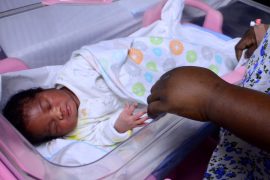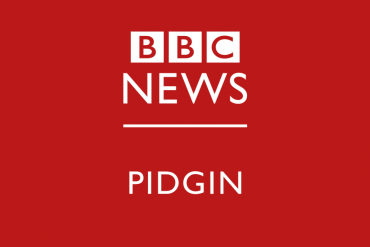Namibia don reach one ogbonge stage wey go end mother-to-child transmission of HIV and Hepatitis B, di World Health Organisation (WHO) tok.
WHO Regional Director for Africa Matshidiso Moeti call am one of di possible greatest public health achievements.
Namibia reach dis landmark achievement afta years of efforts to give pregnant women early access to prenatal care, testing and drugs to ensure say dis diseases no pass from mother to pikin.
In a historic public health achievement, Namibia was today certified the first ‘high burden’ country in the world to reach a significant milestone on the path to the elimination of mother-to-child transmission of hepatitis B.
Read more⬇️ : https://t.co/pZehRnFk2f pic.twitter.com/FlU22VoIxP
— WHO African Region (@WHOAFRO) May 6, 2024
Eliminating infections

Evri year, globally, around 1.2 million women wey dey live wit HIV dey carry belle.
Dem get 15-45% chance of transmitting di virus give dia children during pregnancy, labour, delivery or breastfeeding if dem no dey treated.
Dat risk go drop to about 1% if both mothers and dia babies collect antiretroviral medicines.
And each year, nearly one million pregnant women worldwide dey infected wit Hepatitis B and dem dey transmit am to dia babies.
Again, early screening and treatment of dis women fit avoid complications for dia unborn children.
- Wetin be Sexually Transmitted Infection, and how you fit protect yourself?
- How Kenyan women get justice afta doctor tie dia fallopian tubes without approval
- How shortage of antiretroviral drugs dey affect pipo living wit HIV for Ghana
More dan half of di pipo wey get HIV globally dey for Eastern and Southern Africa. And Africa account for two thirds of new hepatitis B infections globally.
Namibia na home to more dan 200,000 pipo living wit HIV and new infections wey dey affect women.
How Namibia take reach dis milestones
Namibia bin make primary health care wit antenatal, child health and sexual and reproductive health services priority.
Di goment commit stable domestic finance to national health programmes, dem offer accessible, quality and free of charge clinical services and support.
Di kontri make HIV testing among pregnant women almost universally available across di kontri and access to treatment lead to 70% reduction of vertical transmission in di last 20 years.
For 2022, only 4% cent of babies wey dey born to mothers living wit HIV get di virus.
Almost 80% of infants bin receive timely birth dose of hepatitis B vaccine, one of di key metrics of success on di path to elimination.
Di World Health Organisation don award Namibia “silver tier” status for progress on reducing hepatitis B and “bronze tier” for progress on HIV.
Namibia achievement dey come afta strong strategy to stop di transmission of hepatitis B, HIV and syphilis.
WHO Triple Elimination Initiative dey aim to safeguard di health of mothers and children and dem aim to affirm di rights of evri child to dey born free from di burden of dis viruses.
“Namibia don meet dis milestone sake of say dem truly take di integrated approach to di HIV response serious,”
“Namibia reach mothers and dia children, even di ones wey dey most rural areas no dey left out.” Etleva Kadilli, UNICEF Regional Director for Eastern and Southern Africa tok.
Globally, seven in evri 10 pregnant women wey dey live wit HIV for low- and middle-income kontris dey receive effective antiretroviral medicines to prevent transmission of di virus to dia children.








